Why talk about water in my blog? Water is the theme of Lent 2019 in our church (First United Methodist Church of Hurst). Throughout the 40 days, we will study and ponder the storied waters in the Bible. All living things need water. Americans have easy access to clean and safe water and they take it for granted, but others do not. Americans waste vast amounts of water each day. They treat water like it is nothing. In African countries, water is not nothing. It is a precious and rare resource.
I had lived most of my life in the city of Mbujimayi in the Democratic Republic of Congo, in Africa. The name of Mbujimayi comes from our local language, TSHILUBA, and translates as “Goat Water.” Mbujimayi serves as the capital city of Eastern Kasai province in the south-central Democratic Republic of Congo. With an estimated population of 3 million people, Mbujimayi is the third largest city in the country. Lack of safe water has been and continues to be one of the problems affecting families in this city. People are struggling to access the quality and quantity of water they need for drinking, cooking, bathing, handwashing and growing their food.
I have seen people walk from ten to twenty miles to get water from surrounding rivers or streams. They do not realize that many of those streams are contaminated with waste or bacteria. Nevertheless, it is their only source of water. They have no other choice but to drink unsafe water. There are no water pipes coming in from the state water utility.
Young girls and boys also sell water. These water-sellers are recognized by their bicycles and yellow cans and are often at risk of road accidents. The goal is to sell water to pay for their studies. Only affluent families can afford to buy imported bottled water, but at a very expensive price. One liter of bottled water costs about $1, which is cheap for Americans, but for many Congolese who make less than $2 a day it is an impossible luxury. Those who do not have money do not have access to clean water.
African governments do not have the money or the resources to provide clean water to all of the people. The water crisis in Africa is also caused by weak government, corruption and urban infrastructure. Because of this, people drink contaminated water, become sick and die.
We believe water is a sacred gift from God. We believe that water is a basic human right and not a commodity to be traded for profit. Water does not have to be treated like it is nothing. Water does not have to be wasted. We need to learn how to use water gratefully and learn how to help other people have access to clean, safe water and proper sanitation in the world.

